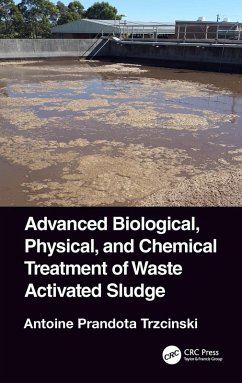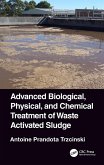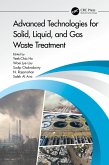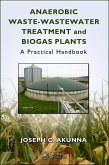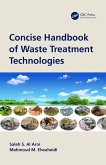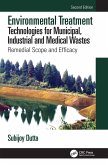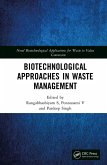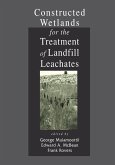Antoine Prandota Trzcinski
Advanced Biological, Physical, and Chemical Treatment of Waste Activated Sludge (eBook, ePUB)
101,95 €
101,95 €
inkl. MwSt.
Sofort per Download lieferbar

51 °P sammeln
101,95 €
Als Download kaufen

101,95 €
inkl. MwSt.
Sofort per Download lieferbar

51 °P sammeln
Jetzt verschenken
Alle Infos zum eBook verschenken
101,95 €
inkl. MwSt.
Sofort per Download lieferbar
Alle Infos zum eBook verschenken

51 °P sammeln
Antoine Prandota Trzcinski
Advanced Biological, Physical, and Chemical Treatment of Waste Activated Sludge (eBook, ePUB)
- Format: ePub
- Merkliste
- Auf die Merkliste
- Bewerten Bewerten
- Teilen
- Produkt teilen
- Produkterinnerung
- Produkterinnerung

Bitte loggen Sie sich zunächst in Ihr Kundenkonto ein oder registrieren Sie sich bei
bücher.de, um das eBook-Abo tolino select nutzen zu können.
Hier können Sie sich einloggen
Hier können Sie sich einloggen
Sie sind bereits eingeloggt. Klicken Sie auf 2. tolino select Abo, um fortzufahren.

Bitte loggen Sie sich zunächst in Ihr Kundenkonto ein oder registrieren Sie sich bei bücher.de, um das eBook-Abo tolino select nutzen zu können.
This book includes new processes to capture organics in raw sewage using the AB process and treating waste activated sludge using biological, physical, mechanical, chemical methods to increase biogas production in the subsequent anaerobic digester.
- Geräte: eReader
- mit Kopierschutz
- eBook Hilfe
- Größe: 10.14MB
Andere Kunden interessierten sich auch für
![Advanced Biological, Physical, and Chemical Treatment of Waste Activated Sludge (eBook, PDF) Advanced Biological, Physical, and Chemical Treatment of Waste Activated Sludge (eBook, PDF)]() Antoine Prandota TrzcinskiAdvanced Biological, Physical, and Chemical Treatment of Waste Activated Sludge (eBook, PDF)101,95 €
Antoine Prandota TrzcinskiAdvanced Biological, Physical, and Chemical Treatment of Waste Activated Sludge (eBook, PDF)101,95 €![Advanced Technologies for Solid, Liquid, and Gas Waste Treatment (eBook, ePUB) Advanced Technologies for Solid, Liquid, and Gas Waste Treatment (eBook, ePUB)]() Advanced Technologies for Solid, Liquid, and Gas Waste Treatment (eBook, ePUB)51,95 €
Advanced Technologies for Solid, Liquid, and Gas Waste Treatment (eBook, ePUB)51,95 €![Anaerobic Waste-Wastewater Treatment and Biogas Plants (eBook, ePUB) Anaerobic Waste-Wastewater Treatment and Biogas Plants (eBook, ePUB)]() Joseph Chukwuemeka AkunnaAnaerobic Waste-Wastewater Treatment and Biogas Plants (eBook, ePUB)57,95 €
Joseph Chukwuemeka AkunnaAnaerobic Waste-Wastewater Treatment and Biogas Plants (eBook, ePUB)57,95 €![Concise Handbook of Waste Treatment Technologies (eBook, ePUB) Concise Handbook of Waste Treatment Technologies (eBook, ePUB)]() Saleh S. Al ArniConcise Handbook of Waste Treatment Technologies (eBook, ePUB)85,95 €
Saleh S. Al ArniConcise Handbook of Waste Treatment Technologies (eBook, ePUB)85,95 €![Environmental Treatment Technologies for Municipal, Industrial and Medical Wastes (eBook, ePUB) Environmental Treatment Technologies for Municipal, Industrial and Medical Wastes (eBook, ePUB)]() Subijoy DuttaEnvironmental Treatment Technologies for Municipal, Industrial and Medical Wastes (eBook, ePUB)50,95 €
Subijoy DuttaEnvironmental Treatment Technologies for Municipal, Industrial and Medical Wastes (eBook, ePUB)50,95 €![Biotechnological Approaches in Waste Management (eBook, ePUB) Biotechnological Approaches in Waste Management (eBook, ePUB)]() Biotechnological Approaches in Waste Management (eBook, ePUB)46,95 €
Biotechnological Approaches in Waste Management (eBook, ePUB)46,95 €![Constructed Wetlands for the Treatment of Landfill Leachates (eBook, ePUB) Constructed Wetlands for the Treatment of Landfill Leachates (eBook, ePUB)]() George MulamoottilConstructed Wetlands for the Treatment of Landfill Leachates (eBook, ePUB)64,95 €
George MulamoottilConstructed Wetlands for the Treatment of Landfill Leachates (eBook, ePUB)64,95 €-
-
-
This book includes new processes to capture organics in raw sewage using the AB process and treating waste activated sludge using biological, physical, mechanical, chemical methods to increase biogas production in the subsequent anaerobic digester.
Dieser Download kann aus rechtlichen Gründen nur mit Rechnungsadresse in A, B, BG, CY, CZ, D, DK, EW, E, FIN, F, GR, HR, H, IRL, I, LT, L, LR, M, NL, PL, P, R, S, SLO, SK ausgeliefert werden.
Produktdetails
- Produktdetails
- Verlag: Taylor & Francis eBooks
- Seitenzahl: 314
- Erscheinungstermin: 2. November 2018
- Englisch
- ISBN-13: 9780429795619
- Artikelnr.: 54675046
- Verlag: Taylor & Francis eBooks
- Seitenzahl: 314
- Erscheinungstermin: 2. November 2018
- Englisch
- ISBN-13: 9780429795619
- Artikelnr.: 54675046
- Herstellerkennzeichnung Die Herstellerinformationen sind derzeit nicht verfügbar.
Dr. Antoine Trzcinski received his PhD from the chemical engineering Department of Imperial College London in the United Kingdom. He developed a novel process for producing biogas from municipal solid waste and for the treatment of landfill leachate. As a senior Research fellow in the Nanyang Environment & Water Research Institute he continued working on solid waste treatment such as waste activated sludge and wastewater treatment in anaerobic membrane bioreactors. He developed novel combinations of pre-treatments of waste activated sludge that result in greater biogas production. He was granted three patents from this work in collaboration with the Public Utilities Board of Singapore. His research interests include fouling mitigation in membrane bioreactors, characterization of soluble microbial products, identification of bacterial and archaeal strains, pharmaceutical and antibiotics removal from wastewater, fate of nanoparticles in the environment and bioelectro stimulation of microbes to improve bioprocesses through interspecies electron transfer (IET). In 2016, He joined the University of Southern Queensland as lecturer and teaches Environmental engineering, Environmental Engineering Practice, Hydraulics, Solid and Liquid Waste Treatment and Applied Chemistry and Microbiology as well as continuing his research in these fields.
Chapter One: Conventional Waste Activated Sludge Process
Chapter Two: Biological Treatment of Sludge: Application of the AB Process to Municipal Wastewater
Chapter Three: Biological Treatment of Sludge: Application of the AB process to Industrial Wastewater
Chapter Four: Thermal/Biological Treatment of Sludge
Chapter Five: Thermal/Alkaline Treatment of Sludge
Chapter Six: Mechanical Treatment of Sludge
Chapter Seven: Chemical Treatment of Sludge
Chapter Eight: Physical Treatment of Sludge: Application of Utlrasound
Chapter Nine: Physico-chemical Treatment: Application of Alkaline and Ultrasonic Pre-treatment of Sewage Sludge
Chapter Ten: Physico-chemical Treatment: Application of Ozone and Ultrasonic Pre-treatment of Sewage Sludge
Chapter Eleven: Physico-chemical Treatment: Application of Ozone
Ultrasonic
and Alkaline Post-treatment of Sewage Sludge
Chapter Twelve: Physio-chemical Treatment: Application of Ozone
Ultrasonic and Alkaline Post-Treatment of Sewage Sludge
Chapter Two: Biological Treatment of Sludge: Application of the AB Process to Municipal Wastewater
Chapter Three: Biological Treatment of Sludge: Application of the AB process to Industrial Wastewater
Chapter Four: Thermal/Biological Treatment of Sludge
Chapter Five: Thermal/Alkaline Treatment of Sludge
Chapter Six: Mechanical Treatment of Sludge
Chapter Seven: Chemical Treatment of Sludge
Chapter Eight: Physical Treatment of Sludge: Application of Utlrasound
Chapter Nine: Physico-chemical Treatment: Application of Alkaline and Ultrasonic Pre-treatment of Sewage Sludge
Chapter Ten: Physico-chemical Treatment: Application of Ozone and Ultrasonic Pre-treatment of Sewage Sludge
Chapter Eleven: Physico-chemical Treatment: Application of Ozone
Ultrasonic
and Alkaline Post-treatment of Sewage Sludge
Chapter Twelve: Physio-chemical Treatment: Application of Ozone
Ultrasonic and Alkaline Post-Treatment of Sewage Sludge
Chapter One: Conventional Waste Activated Sludge Process
Chapter Two: Biological Treatment of Sludge: Application of the AB Process to Municipal Wastewater
Chapter Three: Biological Treatment of Sludge: Application of the AB process to Industrial Wastewater
Chapter Four: Thermal/Biological Treatment of Sludge
Chapter Five: Thermal/Alkaline Treatment of Sludge
Chapter Six: Mechanical Treatment of Sludge
Chapter Seven: Chemical Treatment of Sludge
Chapter Eight: Physical Treatment of Sludge: Application of Utlrasound
Chapter Nine: Physico-chemical Treatment: Application of Alkaline and Ultrasonic Pre-treatment of Sewage Sludge
Chapter Ten: Physico-chemical Treatment: Application of Ozone and Ultrasonic Pre-treatment of Sewage Sludge
Chapter Eleven: Physico-chemical Treatment: Application of Ozone
Ultrasonic
and Alkaline Post-treatment of Sewage Sludge
Chapter Twelve: Physio-chemical Treatment: Application of Ozone
Ultrasonic and Alkaline Post-Treatment of Sewage Sludge
Chapter Two: Biological Treatment of Sludge: Application of the AB Process to Municipal Wastewater
Chapter Three: Biological Treatment of Sludge: Application of the AB process to Industrial Wastewater
Chapter Four: Thermal/Biological Treatment of Sludge
Chapter Five: Thermal/Alkaline Treatment of Sludge
Chapter Six: Mechanical Treatment of Sludge
Chapter Seven: Chemical Treatment of Sludge
Chapter Eight: Physical Treatment of Sludge: Application of Utlrasound
Chapter Nine: Physico-chemical Treatment: Application of Alkaline and Ultrasonic Pre-treatment of Sewage Sludge
Chapter Ten: Physico-chemical Treatment: Application of Ozone and Ultrasonic Pre-treatment of Sewage Sludge
Chapter Eleven: Physico-chemical Treatment: Application of Ozone
Ultrasonic
and Alkaline Post-treatment of Sewage Sludge
Chapter Twelve: Physio-chemical Treatment: Application of Ozone
Ultrasonic and Alkaline Post-Treatment of Sewage Sludge
